A nation that fractures along identity politics boundaries is almost certainly doomed.
When Lenin and Trotsky started their rebellion against the provisional government of Alexander Kerensky in St. Petersburg, Russia in November, 1917, they expected to be arrested and sent into exile, as had always happened before. Instead, a few days later, much to their surprise, they were in control of the capital and, soon, the nation. What happened?
 The Bolsheviks were prepared to use violence to get their way, and just the threat of that violence quickly won out in the vacuum created at the center of Kerensky’s government, and at the center of the nation as a whole. Why was there a vacuum which the thugs could so easily exploit, with so little resistance to their methods?
The Bolsheviks were prepared to use violence to get their way, and just the threat of that violence quickly won out in the vacuum created at the center of Kerensky’s government, and at the center of the nation as a whole. Why was there a vacuum which the thugs could so easily exploit, with so little resistance to their methods?
The “good people” had all splintered into identity groups and had stopped working together, or even talking to each other. The land owners, merchants, military officers, employers, conscripts, peasants, workers, small farmers, Orthodox leaders, Protestant leaders and bureaucrats all stood on the sidelines and carped at one another, refusing to work together unless their own interests were first addressed. And then each of those groups was further divided between those who wanted to stay in World War I and those who wanted to pull out of the battle against Germany and Austria.
Into this fractious mess stormed a relatively small number of Bolsheviks. They hardly fired a shot in the capital—they just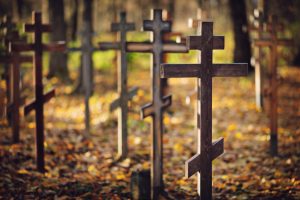 threatened to do so. Across the rest of the country they lined up against walls those unlike their group and shot enough of them until the rest gave in. Pretty quickly, with no organized resistance, the Bolsheviks found themselves in charge, with little or no plan except the Dictatorship of the Proletariat, whatever that meant. Terror, death and destruction followed for decades.
threatened to do so. Across the rest of the country they lined up against walls those unlike their group and shot enough of them until the rest gave in. Pretty quickly, with no organized resistance, the Bolsheviks found themselves in charge, with little or no plan except the Dictatorship of the Proletariat, whatever that meant. Terror, death and destruction followed for decades.
While it is easy to pigeon hole this example as a “Russian problem” of a hundred years ago, the result is actually a human problem of every place and time. Think of the Hutus and Tutsis in Rwanda, slavery in the U.S., the Holocaust, The Terror in Paris, the killing  fields of Pol Pot in Cambodia, burning heretics at the stake, 50 million murdered unborn babies in the U.S., the Rape of Nanking by the Japanese, lynchings in the South, our treatment of Native Americans during our nation’s western expansion.
fields of Pol Pot in Cambodia, burning heretics at the stake, 50 million murdered unborn babies in the U.S., the Rape of Nanking by the Japanese, lynchings in the South, our treatment of Native Americans during our nation’s western expansion.
What is common about all of these terrible events? One group of people decides that another group is not fully human, not equal to their own group. And so it is acceptable first to mistreat them, and then, as the process continues and the rationalizations flow, to kill them.
Our current environment of increasing identity politics is not there yet, of course, but I doubt that many people in the above examples imagined just a few years before the mistreatment and killings started that it could be possible in their societies, either. And the Russian example shows that people who thought they were enemies found themselves standing against a wall together.
And be clear that this issue is not limited to secularists or to people of faith. It is truly a human condition, just below the surface. The Enlightenment, for all its benefits, at the extremes also produced “scientific” Social Darwinism, The Terror, The Holocaust, abortions, and other forms of destroying those “proven” to be less human than those who hold power. Faith, for all its benefits, at the extremes also produced The Inquisition, Jihad, innumerable wars and massacres, as well as the misplaced foundation for colonialism, slavery, etc.
Those of strong faith and those who hate faith must be cautious to blame the other for mankind’s worst events. In at least this one area we are all, sadly, potentially equal.
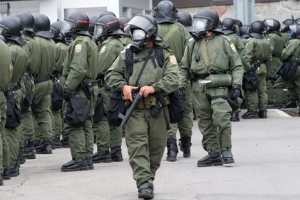 Given all of these examples, I am forced to conclude that the possibility for identity politics descending into something much worse is ever present and always possible, lurking just below the surface in every civil society, including ours. My faith would confirm that conclusion by reminding me that we are all fallen, all sinners. And I am also convinced that unless good people of all types, opinions and faiths take active steps to push back against it, one misstep could lead to events which a few months earlier would have seemed impossible.
Given all of these examples, I am forced to conclude that the possibility for identity politics descending into something much worse is ever present and always possible, lurking just below the surface in every civil society, including ours. My faith would confirm that conclusion by reminding me that we are all fallen, all sinners. And I am also convinced that unless good people of all types, opinions and faiths take active steps to push back against it, one misstep could lead to events which a few months earlier would have seemed impossible.
The counter to Identity Politics is Issue Politics—concepts, policies and laws which transcend one or a few groups and benefit the general populace. There is a saying that America is not a place, but an Idea. I would expand that to say that America at its best is Ideas. All people are created equal. Insure equal opportunity for all. No special deals for the powerful. Democracy. Truth in all things. The 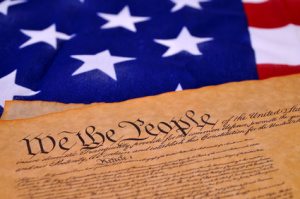
Of course all issues can have both an Identity and an Issue component, but which do we emphasize? Do we try to find others who will agree with us and expand a solution beyond our group, or do we pull back into our tribe, our group, and claim special results because we are victims? And then, most importantly for this discussion, brand others not like us as less than us, as unworthy to be heard, considered, or even seen?
On college campuses, city halls, social media postings, and the 24/7 news cycle we are bombarded by identity groups who shout, interrupt, excoriate, deride, denounce and literally attack the humanity of those with whom they do not agree on some issue. They speak of their opponents as if they are in some sub-human group, without hope of rehabilitation.
How do people of good will who differ on issues keep our differences civil, verbal and headed toward some type of resolution, instead of descending into the pit of degradation, or worse? How do we keep the ever present possibility of coercion and violence out of the public square?
I will focus a few suggestions in two broad areas: personal and societal.
As a Christian believer, I find it hard to think of myself as better than anyone else because I believe that God created every person in 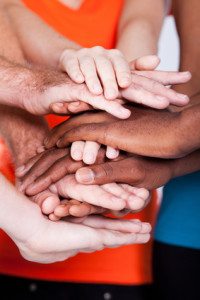
While others emphasize Diversity, I like to emphasize Inclusion—how we are all the same, despite some obvious physical differences. Diversity feeds Identity Politics. Inclusion recognizes the differences but helps bring us together, across our differences.
So on a personal level, I hope that at least those of us who are believers will intentionally reach out to those who are different from us in physical traits, faith, political leanings, etc., and vigorously discuss those differences in ways which are neither threatening nor belittling of the other person. We may not change anyone’s mind right now, but we can extend a hand and explain how faith informs our thoughts on marriage, the family, work, retirement, abortion, and even debt (personal and national).
Surely there are opportunities for two people to at least fully understand how they came to their different opinions in a rational way, and hopefully to find areas of agreement. So that they can continue to talk and continue to honor the other person, as God intends 
For the nation as a whole, I wish that every member of Congress, every policy maker, and everyone in the media would follow that one-on-one example with someone with whom he or she disagrees on policy matters. Why does that other person believe as they do? What is their thought process? Do they have any good points for further consideration? Can we find some common ground? And then can we interact to create positive results?
And I have one very practical but controversial suggestion: return Congressional Districts to simple geographic boundaries instead of convoluted, gerrymandered boundaries which try to accomplish an altruistic goal, but which wind up with unintended and often contrary consequences (see this Newsweek article and this List).
The Majority-Minority Districts were mandated in the 1965 Voting Rights Act to counter the clear excesses of White Identity Politics in the South, trying to right a long-standing identity politics wrong. But aren’t we beyond that now, and don’t these always-gerrymandered districts (by one side or the other) create the safe corners from which our representatives can take actions only for their identity base?
Who would have imagined that by trying to right the wrong of White Political Identity we would create a government which is almost incapable of action, frozen by its identity purists? And, like the Russians one hundred years ago, our own elected officials calling each other names appears to be the operational substitute for actual problem solving.
What if our districts were instead set almost entirely by geography and long-standing governmental boundaries, without overriding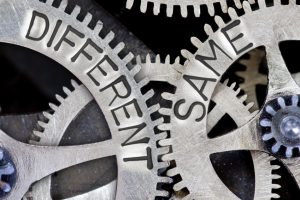
I said it would be controversial, but I think it is a key step to get us focused back on issues instead of on groups, tribes and excessive self-interest.
In general, particularly as believers, we must engage, discuss, explain, and look for paths forward that are mutually acceptable. And when we hear others being derided, denigrated or marginalized for any reason—appearance, group, ideology or beliefs—we must come to their defense. I may not agree with them, but, like me, they are created by God in His image, and I owe them the respect to hear them out and to engage them on issues, not identities.

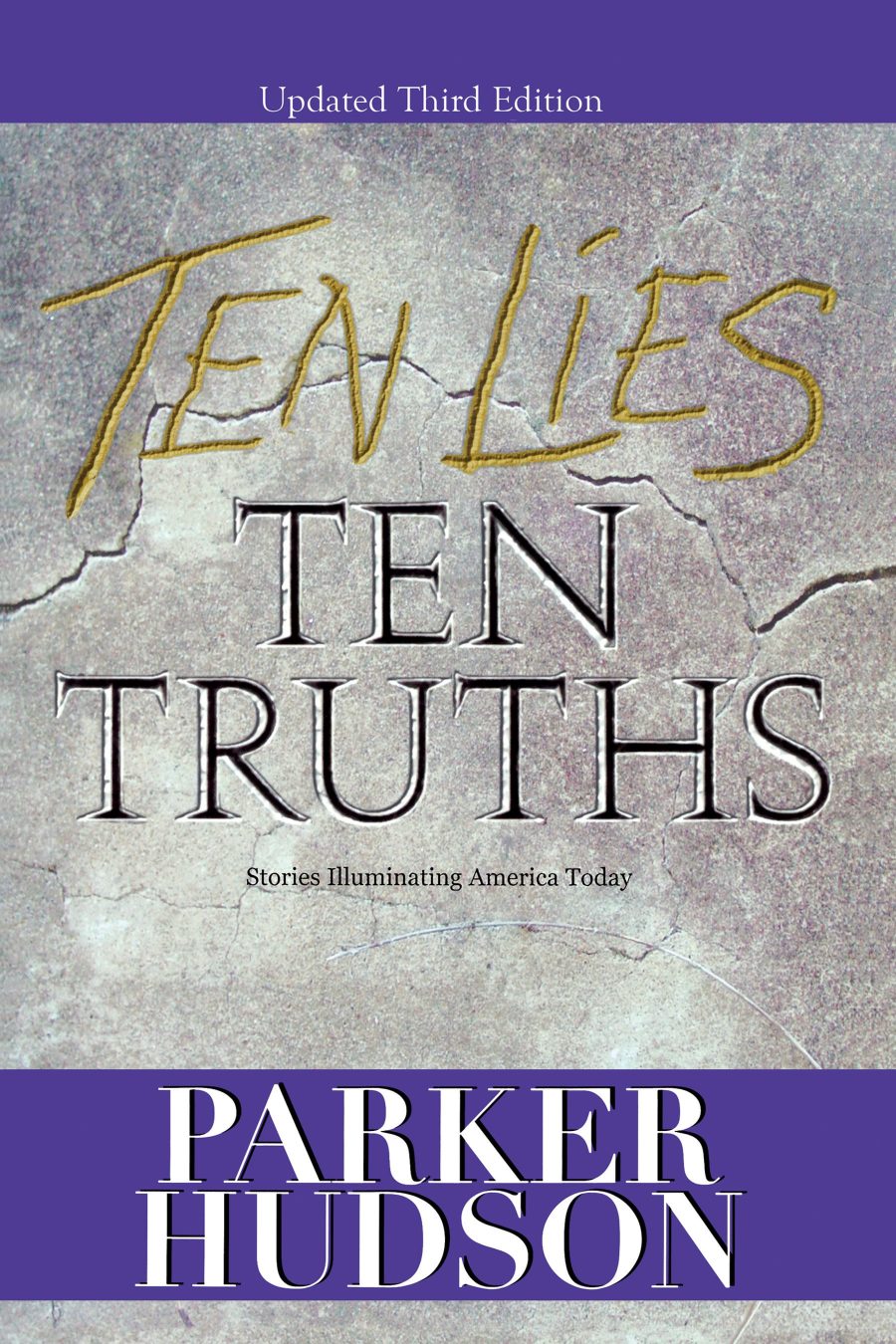
This is my first time reading your blog and I am very impressed. Terrific insightful comments!
Tim, thank you. Please enjoy the Archives as well. I hope you will find some more helpful posts. All the best.
Parker, this is a masterful exhortation to thoughtful dialogue. As a Christian, I am disheartened at the level of selfish, earthbound myopia displayed in the Christian community. We should be a prophetic community that represents the eternal interests of the everlasting kingdom to come.
Instead, too often we are nothing more than “Christian” nationalists with no more character than the Crusaders. Exacerbating rather than righteously alleviating society’s ills.
It is refreshing to read an article that sees and navigates through the fog of partisan politics and human selfishness.
God bless you, brother!
Eric, brother, thank you for your kind words of encouragement. And, please, keep writing! All the best.
Great article with much to consider.
“Diversity feeds Identity Politics. Inclusion recognizes the differences but helps bring us together, across our differences.”—Perfectly stated and something we all may wish to work towards.
When I am among Democrats, all I hear from them is Identity Politics or Balkanization or Victimhood. When I am among Republicans, all I hear from them is Issue Politics or what Cause and Effect are or what Opportunities (as opposed to guarantees) open for all people. I am a descendant of both Republican Abolitionists and Carpetbaggers on the one hand and Democrat Slave-owners on the other hand. During the course of the past century, I cannot say that much has changed. When I see the vast corruption in Washington, D.C., in state capitols, and in communities, I must earnestly pray for our nation and evoke the prayer of Isaiah. Then, apart from the Dems and Republicans, I also hear the voices of the Muslim Terrorists, the Socialists, the Anarchists and the Nihilists, all calling for instant death to Americans and to America. Truly, we must depend on the Lord and then put feet to our prayers to bring about a better place in which to live. We now have lots of people inside the United States, thanks to Trojan Horse immigration policies of the past ten years, who want to slice off the heads of Christians and Jews. The cheerleaders of all this mayhem, the Major Media, are Secular-Fundamentalists and just rejoice in chaos. They create narratives and then try to find any fact to support them. They are gossip-grinders like those we read about in the Bible. History is nothing more than yesterday’s news headlines and, hopefully, not yesterday’s Fake news headlines, since there is plenty of that currently. But, it does take two to tango. We respect others and want to hear their arguments, while they merely want to kill us. I think that your ethos must be flexible enough to recognize that great truth, also.